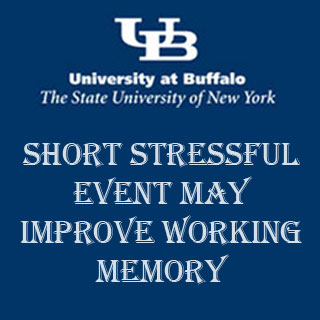
But now a new study has stated that experiencing short stressful events may possibly have the ability to boost one’s learning and memory. The study investigators believe that acute stress could have a positive effect on learning and memory. This revelation was made by the investigators from the University at Buffalo.
An analysis on animal models was believed to have shown that acute stress can enhance learning and memory, via the effect of the stress hormone on the brain’s prefrontal cortex. Seemingly, the effect of the corticosterone (cortisol in humans) stress hormone on the prefrontal cortex of the brain, which is crucial to controlling learning and emotions, was noted to have brought about the positive effect of acute stress on learning and memory.
More precisely, it was observed that acute stress seemed to increase transmission of the neurotransmitter glutamate and boosted working memory.
Study author, Zhen Yan, professor of physiology and biophysics at University at Buffalo, says, “Stress hormones have both protective and damaging effects on the body. This paper and others we have in the pipeline explain why we need stress to perform better, but don’t want to be stressed out.â€
Yan says that various brain regions that are involved in emotions and cognition have notably been recognized to be the main target of corticosterone.
“Several key brain regions involved in cognition and emotions, including the prefrontal cortex, have been identified as the primary target of corticosteroid, the major stress hormone,†continues Yan. “Our current study identifies a novel mechanism that underlies the impact of acute stress on working memory, a cognitive process depending on glutamate receptor-mediated excitatory signals in prefrontal cortex circuits.â€
The various observations made in the study may presumably aid in better understanding the complicated actions of stress in varying situations that are related to human beings.
This study has been published in the online edition of Proceedings of the National Academy of Sciences, and is also believed to be published in print in the forthcoming issue of the journal.
